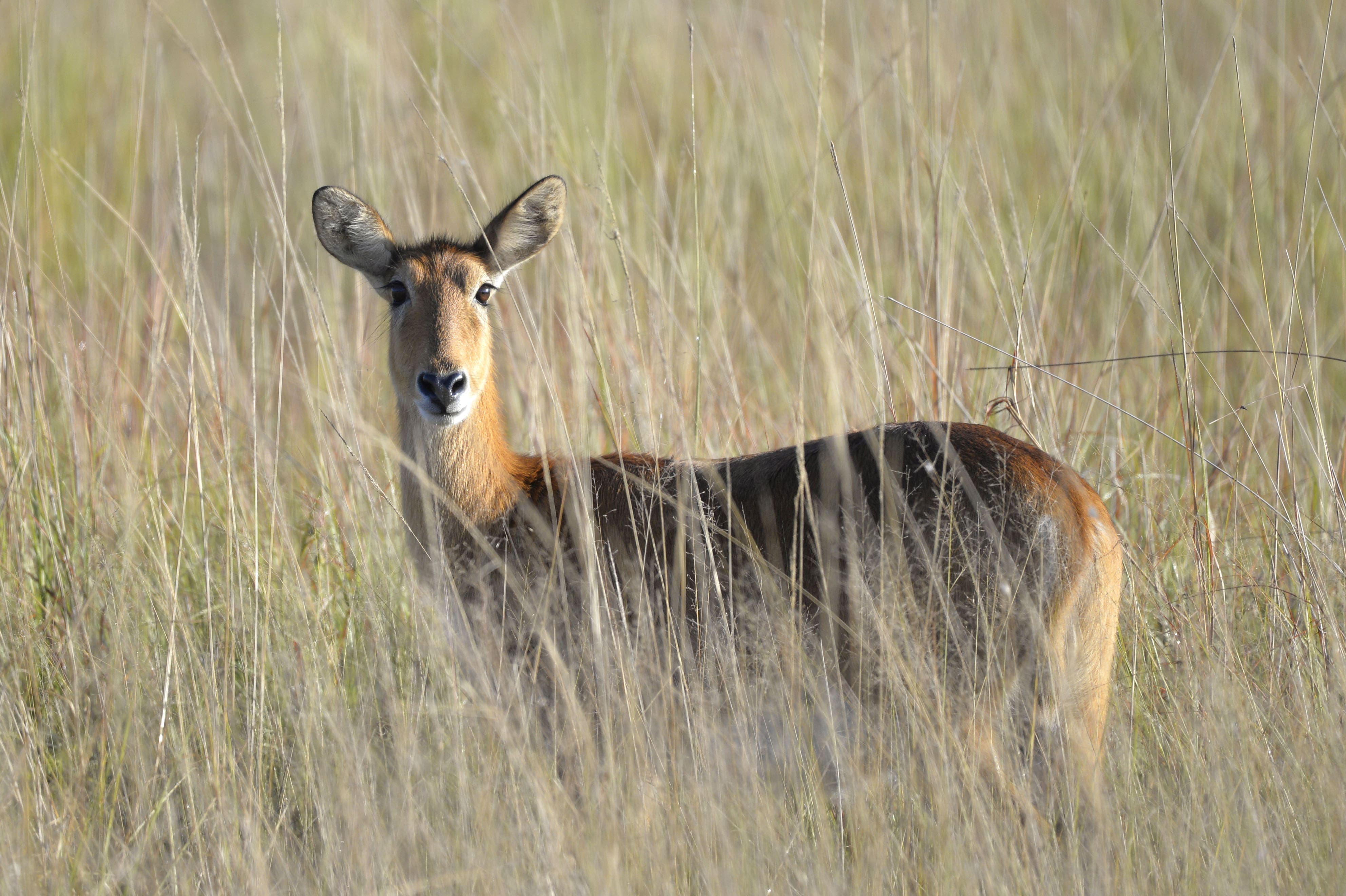
I’ve been called all sorts over the years; Vardon’s kob, the Kafue goat, poku, and more recently, puku – but my proper name is Kobus vardoni. We were given the name by David Livingstone after his elephant-hunting buddy, Major Frank Vardon.
My family include the waterbucks (big, bulky and look like a toilet seat has been strapped to their rumps) then there are the kobs, (our Ugandan cousins who made it onto their country’s coat of arms) and finally the lechwes (the long-distance, leggy runners of our family).
All our family are huge fans of water and so if you ever find yourself lost in the bush, just follow us and we’ll soon lead you to a life-saving drink.
Personally, I would like to lose a bit of weight, but puku in general weigh between 70 and 80kgs and stand 80cm at the shoulder. We have a shaggy coat (although “fluffy” would be a better description); it’s nice and warm in the winter months, cool in the summer months (on account of our hairs being hollow and good insulators) and heavily water-proofed, which is really useful considering where we live in the marshlands.
All the males in our puku population have stocky, lyre-shaped, ridged horns and I love the sound they make when they start crashing them together during a fight – that sound always alerts us girls and brings us to attention, because it indicates the start of our ultimate hobby: rut-watching! We basically get to watch all the males strut their stuff on the “Lek”. The Lek is like a massive fighting ring or parading stage; The males have endless battles and we females get to choose which male we will back. Sometimes they fight and sometimes they simply show-off, walking about in ridiculous poses, in displays of strength and stature. The aim of the game is to keep as many of us females in their Lek as possible.
We have to be careful during these battles though, because so many predators are on the outskirts watching and waiting too… they often pick off the male losers of each fight as they are so vulnerable, especially when they get tired or injured – we quite often post a sentry or two, who will make a trill whistle sound through their nostrils if alarmed, if you hear it more than 4 or 5 times, it indicates predators like lions, leopards or hyena. It’s a brutal and somewhat dangerous gathering, but an impressive sport to watch. I can’t wait until I hear that horn-clashing sound again and we girls can get settled down to watch another epic battle.
Talking of battles… next time a Zambian 20 Kwacha note passes through your hands, take a closer look and use it to join a bet we have been having with our cousins the Black Lechwe’s for years; The note is said to feature them on the front, however we think the image looks more like us, the puku, instead.
